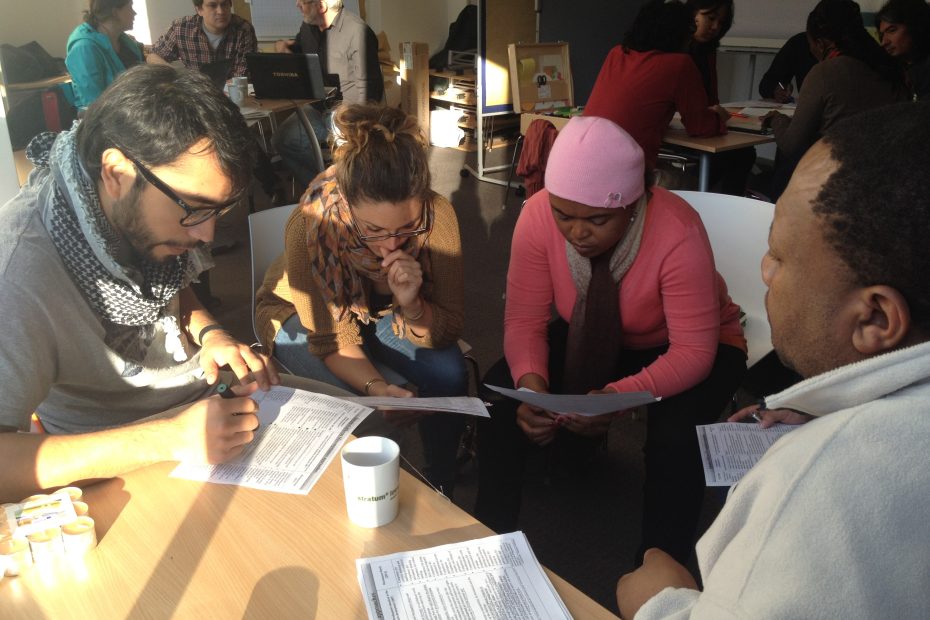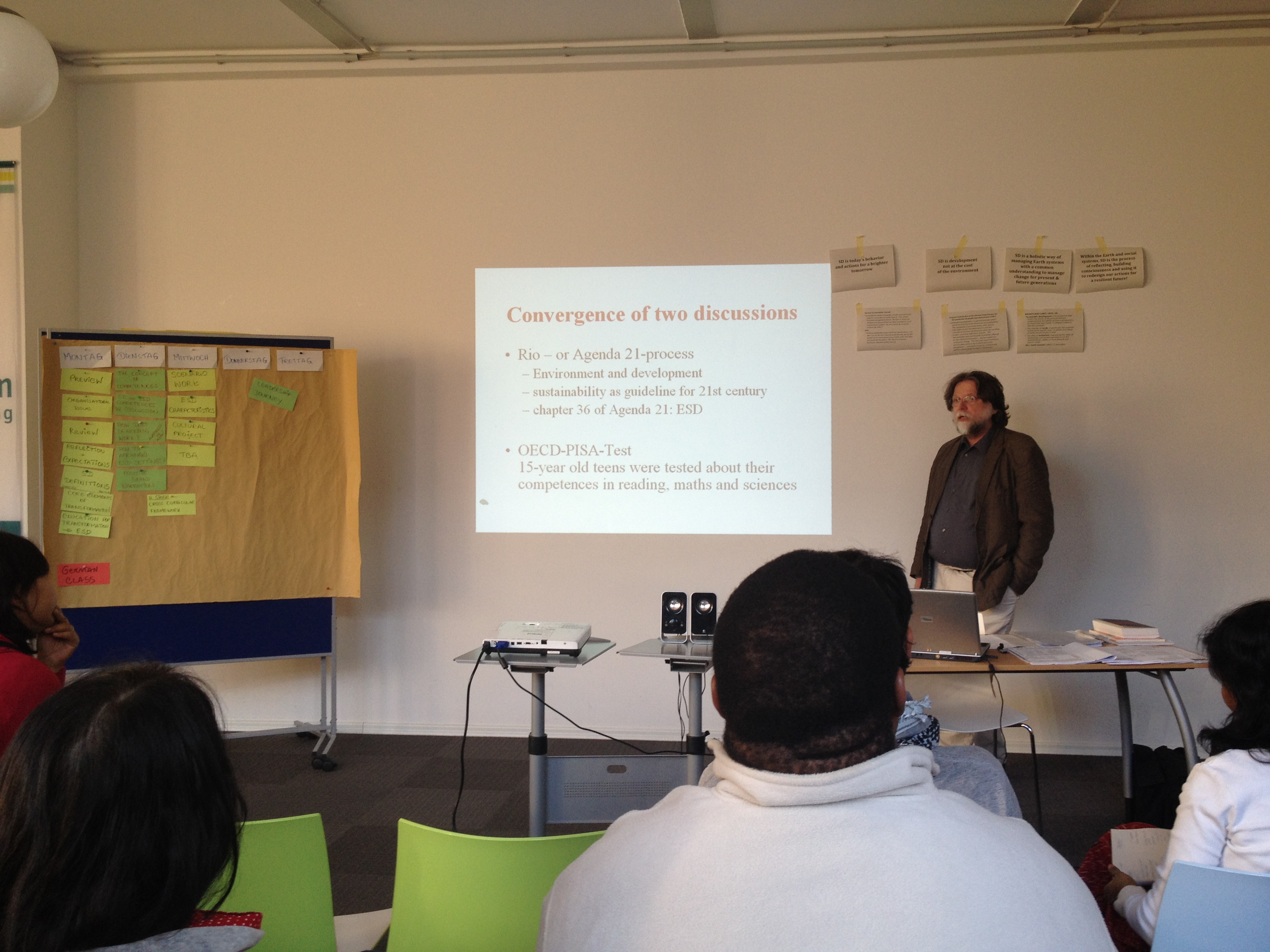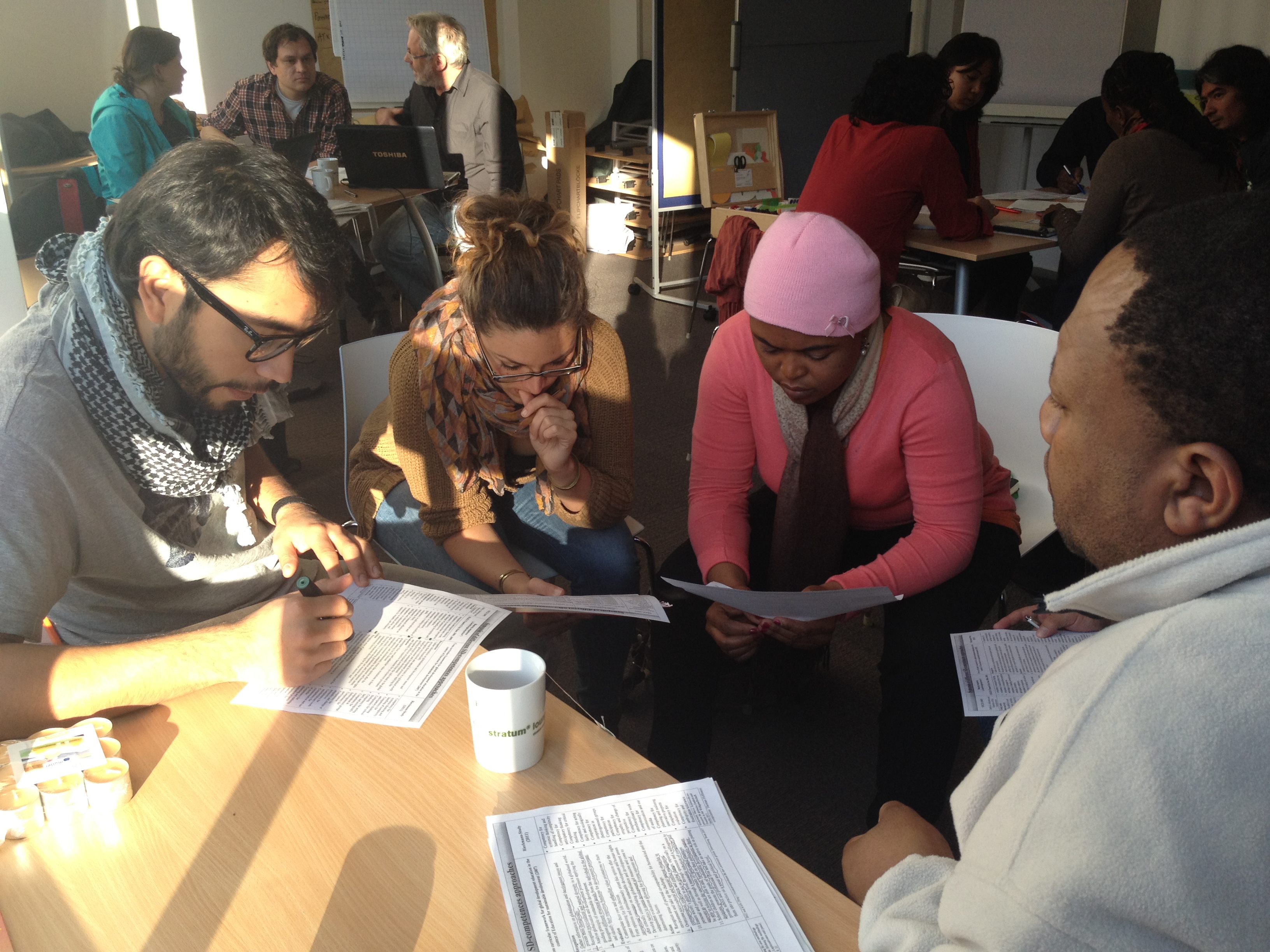Tuesday’s training will be taken by Dr. Thomas Hoffmann, who specialises in teacher training in the field of Geography.
He began the morning with an introductory presentation, based around the recent changes in education.
PISA tests carried out in Germany showed that students were not progressing as well as was expected or thought.
This was said to be caused by the mainly ‘input’ system of learning i.e. telling educators precisely what they need to teach.
This effect was mediated by adapting to a more ‘output’ oriented way of teaching – What should these children be learning at this point?
In 2002-2004, competence concepts emerged, partly in response to changing living conditions e.g. globalisation, and an increase in global challenges e.g. climate change.
The group was set the task to choose five top competences from four main SD approaches, namely;
OECD (2005)
Shaping Competence (2008)
Cross Curricular Framework (2007)
Rieckmann Study (2011)
Presenting their outcomes to the rest of the group, coloured cards were used to clearly show which approaches each group had thought most highly of, and so chosen the most competences from.
Rieckmann was the winner. As his approach was formed from a culmination of many existing theories, this makes sense. Dr Hoffmann closed this section by sharing his top 5 competences based on his experience.
‘You cannot communicate compentences! They have to be developed!’
Jurgen Rost, 2009.
In mixed nationality groups, this opinion was discussed; first noted down from each national perspective, and then the views discussed and shared in the groups (Think-Pair-Share). Discussion was quickly opened up to the whole floor, comparing countries and personal viewpoints.
Dr. Thomas gave an example of how one exercise could be shared with a class, in different ways. For example, one can asked for two pictures to be described separately, one can ask for two photos to be compared against each other, or one can ask a question about an unseen entity, the answer to which could be derived from the photos using certain competences.
Awareness or Action?
Would it be better to push for action, and rely on awareness being raised through that? For so long now, the group agreed, awareness has been the priority, and action has been presumed to follow. However, this may not have come to pass.
Positive Narration
The final task for today’s groups was to tell one another two positive stories in relation to their Sustainable Development experience, to rank their top three, and from these to form a ‘big narration on sustainability,’ to be presented and discussed before the close of the day.




